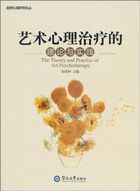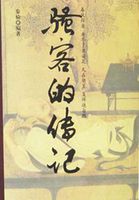3. Principium Individuationis. From what has been said, it is easy to discover what is so much inquired after, the principium individuationis; and that, it is plain, is existence itself; which determines a being of any sort to a particular time and place, incommunicable to two beings of the same kind. This, though it seems easier to conceive in simple substances or modes; yet, when reflected on, is not more difficult in compound ones, if care be taken to what it is applied: v.g. let us suppose an atom, i.e. a continued body under one immutable superficies, existing in a determined time and place; it is evident, that, considered in any instant of its existence, it is in that instant the same with itself. For, being at that instant what it is, and nothing else, it is the same, and so must continue as long as its existence is continued; for so long it will be the same, and no other. In like manner, if two or more atoms be joined together into the same mass, every one of those atoms will be the same, by the foregoing rule: and whilst they exist united together, the mass, consisting of the same atoms, must be the same mass, or the same body, let the parts be ever so differently jumbled. But if one of these atoms be taken away, or one new one added, it is no longer the same mass or the same body. In the state of living creatures, their identity depends not on a mass of the same particles, but on something else. For in them the variation of great parcels of matter alters not the identity: an oak growing from a plant to a great tree, and then lopped, is still the same oak; and a colt grown up to a horse, sometimes fat, sometimes lean, is all the while the same horse:
though, in both these cases, there may be a manifest change of the parts; so that truly they are not either of them the same masses of matter, though they be truly one of them the same oak, and the other the same horse. The reason whereof is, that, in these two cases- a mass of matter and a living body- identity is not applied to the same thing.
4. Identity of vegetables. We must therefore consider wherein an oak differs from a mass of matter, and that seems to me to be in this, that the one is only the cohesion of particles of matter any how united, the other such a disposition of them as constitutes the parts of an oak; and such an organization of those parts as is fit to receive and distribute nourishment, so as to continue and frame the wood, bark, and leaves, &c., of an oak, in which consists the vegetable life. That being then one plant which has such an organization of parts in one coherent body, partaking of one common life, it continues to be the same plant as long as it partakes of the same life, though that life be communicated to new particles of matter vitally united to the living plant, in a like continued organization conformable to that sort of plants. For this organization, being at any one instant in any one collection of matter, is in that particular concrete distinguished from all other, and is that individual life, which existing constantly from that moment both forwards and backwards, in the same continuity of insensibly succeeding parts united to the living body of the plant, it has that identity which makes the same plant, and all the parts of it, parts of the same plant, during all the time that they exist united in that continued organization, which is fit to convey that common life to all the parts so united.
5. Identity of animals. The case is not so much different in brutes but that any one may hence see what makes an animal and continues it the same. Something we have like this in machines, and may serve to illustrate it. For example, what is a watch? It is plain it is nothing but a fit organization or construction of parts to a certain end, which, when a sufficient force is added to it, it is capable to attain. If we would suppose this machine one continued body, all whose organized parts were repaired, increased, or diminished by a constant addition or separation of insensible parts, with one common life, we should have something very much like the body of an animal; with this difference, That, in an animal the fitness of the organization, and the motion wherein life consists, begin together, the motion coming from within; but in machines the force coming sensibly from without, is often away when the organ is in order, and well fitted to receive it.
6. The identity of man. This also shows wherein the identity of the same man consists; viz. in nothing but a participation of the same continued life, by constantly fleeting particles of matter, in succession vitally united to the same organized body. He that shall place the identity of man in anything else, but, like that of other animals, in one fitly organized body, taken in any one instant, and from thence continued, under one organization of life, in several successively fleeting particles of matter united to it, will find it hard to make an embryo, one of years, mad and sober, the same man, by any supposition, that will not make it possible for Seth, Ismael, Socrates, Pilate, St. Austin, and Caesar Borgia, to be the same man.
For if the identity of soul alone makes the same man; and there be nothing in the nature of matter why the same individual spirit may not be united to different bodies, it will be possible that those men, living in distant ages, and of different tempers, may have been the same man: which way of speaking must be from a very strange use of the word man, applied to an idea out of which body and shape are excluded.
And that way of speaking would agree yet worse with the notions of those philosophers who allow of transmigration, and are of opinion that the souls of men may, for their miscarriages, be detruded into the bodies of beasts, as fit habitations, with organs suited to the satisfaction of their brutal inclinations. But yet I think nobody, could he be sure that the soul of Heliogabalus were in one of his hogs, would yet say that hog were a man or Heliogabalus.















